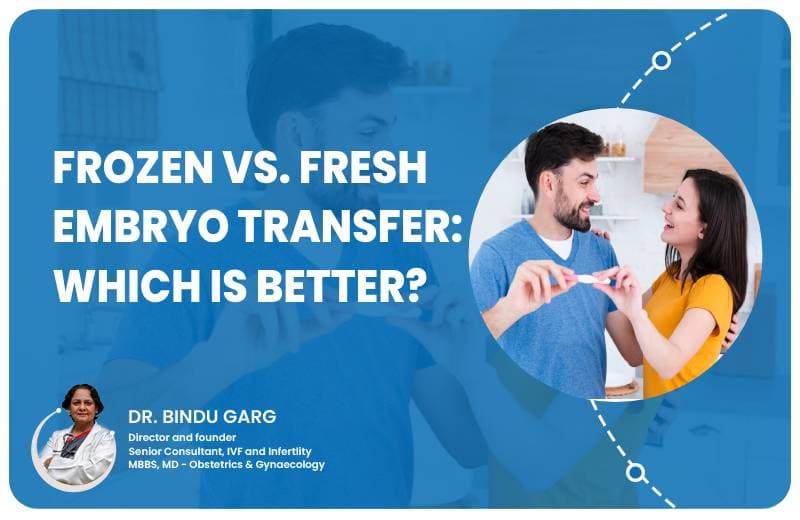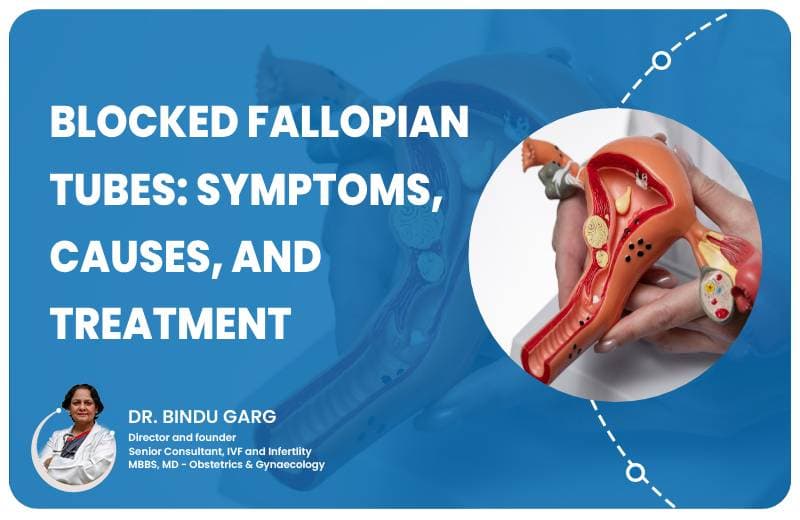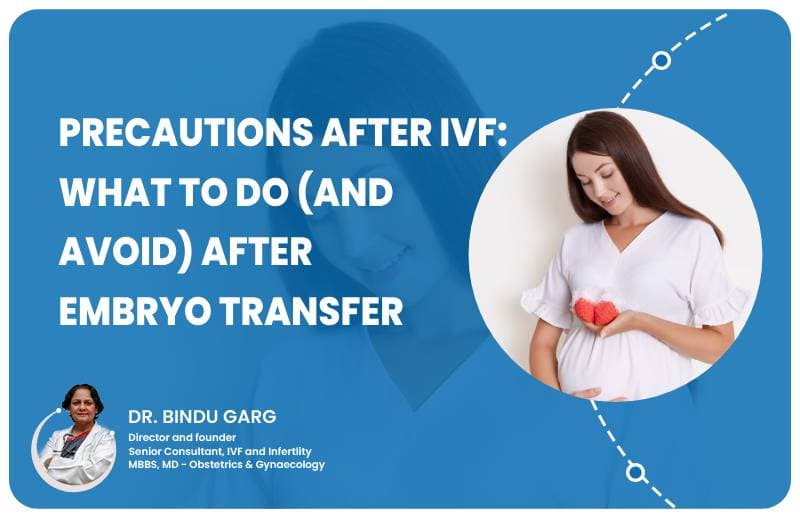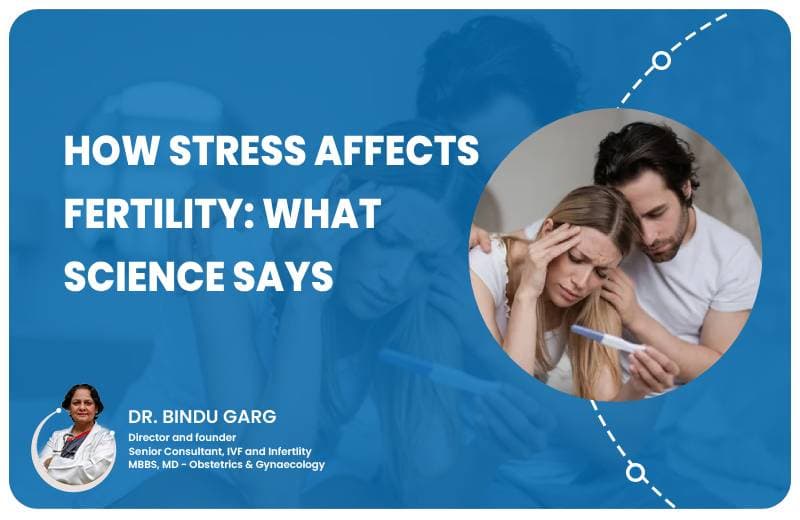What is ICSI (Intracytoplasmic Sperm Injection) in Fertility Treatment?ICSI, or Intracytoplasmic Sperm Injection, is a specialized technique used in conjunction with In Vitro Fertilization (IVF) to achieve fertilization. It's a boon for couples struggling with infertility, particularly due to male-factor issues.
ICSI acts as a bridge, allowing couples facing male infertility to achieve fertilization – a crucial step towards a successful pregnancy and parenthood.
However, it's important to note that ICSI is part of the IVF process, which involves stimulating egg production, egg retrieval, embryo development, and implantation. Its success rates depend on various factors beyond fertilization, including egg quality, age, and underlying health conditions.
Conditions When ICSI Treatment is RecommendedICSI is the most effective process for couples facing infertility, but it's not a one-size-fits-all solution. Here are some common conditions where ICSI treatment might be recommended by a fertility specialist:
- Male-factor infertility: This is the primary reason for ICSI. It includes conditions like:
- Low sperm count: When the number of sperm in a man's ejaculate is significantly lower than normal.
- Poor sperm motility: When sperm have weak movement and difficulty reaching the egg.
- Abnormal sperm morphology: When sperm have an irregular shape that hinders fertilization.
- Blockages: Blockages in the male reproductive tract that prevent sperm from reaching the ejaculate.
- Previous failed IVF cycles: If traditional IVF attempts with conventional sperm injection haven't resulted in fertilization, ICSI can be an option for the next cycle.
- Certain genetic conditions: In some cases, ICSI might be recommended to avoid passing on genetic diseases to offspring.
- Unexplained infertility: When the cause of infertility remains unclear after evaluation, ICSI may be suggested alongside other techniques to improve the chances of conception.
It's important to remember that a consultation with a fertility specialist is crucial to determine the most suitable course of treatment. They will consider your circumstances, including the cause of infertility, medical history, and overall health, before recommending ICSI or other fertility treatments.
Steps Involve in the ICSI ProcedureICSI is a multi-step process performed within an IVF cycle. Here's a breakdown of the key steps:
- Preparation (for both partners):
- Fertility Evaluation: Both partners undergo tests to assess their overall fertility health. This may involve blood tests, hormone evaluations, and ultrasounds.
- Ovulation Induction: The female partner might take medications to stimulate the ovaries and produce multiple mature eggs, increasing the chances of successful fertilization.
- Sperm Retrieval:
- Semen Analysis: A semen sample is analyzed to assess sperm count, motility, and morphology.
- Sperm Collection: The sperm can be collected through ejaculation or surgically retrieved directly from the testicles using techniques like TESA (testicular sperm aspiration) or MESA (microsurgical epididymal sperm aspiration) if ejaculation is not possible.
- Egg Retrieval:
- Egg Maturation Monitoring: Follicle growth is monitored using ultrasounds to determine the optimal time to retrieve mature eggs.
- Egg Retrieval Procedure: Using a guided needle, mature eggs are retrieved from the woman's ovaries under light sedation.
- The ICSI Process (in the lab):
- Sperm Preparation: Healthy sperm with good motility are selected and isolated using specialized techniques.
- Egg Preparation: Mature eggs are carefully selected for injection.
- Microinjection: An embryologist uses a microscopic needle to inject a single, healthy sperm directly into the cytoplasm of each mature egg.
- Fertilization and Embryo Development:
- Fertilization Check: After injection, the eggs are monitored for signs of fertilization (development of an embryo).
- Embryo Culture: Fertilized eggs (embryos) are carefully monitored and cultured in a controlled laboratory environment for several days, allowing them to develop.
- Embryo Transfer and Pregnancy:
- Embryo Selection: One or more healthy embryos are chosen for transfer to the woman's uterus based on specific criteria.
- Embryo Transfer: The chosen embryos are carefully placed into the uterus using a thin catheter under ultrasound guidance.
- Pregnancy Test: After a designated waiting period, a pregnancy test is performed to check for implantation and potential pregnancy.
It's important to note that ICSI is a complex procedure with each step requiring expertise and careful monitoring. The success rate can vary depending on various factors. Consulting a qualified fertility specialist can provide more personalized information about the ICSI process and your specific situation.
After ICSI ProcedureFollowing the ICSI procedure, which is part of the overall IVF process, there are some key things to expect:
- Recovery: You'll likely experience some mild cramping or discomfort after the egg retrieval procedure. Medications can help manage any discomfort.
- Post-procedure Instructions: Your doctor will provide specific instructions regarding medications, activity levels, and follow-up appointments.
- Waiting Period: After embryo transfer, there's a waiting period of typically 7-10 days before a pregnancy test can be performed to detect implantation. This can be an emotionally demanding time.
- Pregnancy Test: A blood test or home pregnancy test will be used to check for pregnancy. A positive test indicates successful implantation and the beginning of pregnancy.
- Prenatal Care: The female partner might take medications to stimulate the ovaries and produce multiple mature eggs, increasing the chances of successful fertilization. If the pregnancy test is positive, prenatal care will begin to monitor the developing baby's health.
If the ICSI cycle is unsuccessful
- It can be emotionally challenging. Talking to your doctor or a therapist can help you cope with these emotions.
- You can discuss the possibility of another IVF cycle with or without ICSI, depending on the reasons for the unsuccessful cycle.
Here are some additional points to consider:
- Lifestyle Changes: Your doctor may recommend healthy lifestyle changes such as maintaining a balanced diet, getting regular exercise, and managing stress to improve overall health and potentially increase the chances of a successful pregnancy.
- Emotional Support: Fertility treatments can be emotionally challenging. Having a strong support system from your partner, family, or friends can be invaluable.
- Support Groups: Connecting with support groups for people undergoing fertility treatments can provide a sense of community and understanding.
Remember, consulting with your doctor throughout the process is crucial. They can address any questions or concerns you may have and provide personalized guidance based on your specific situation.
Factors That Can Affect the Success Of ICSI TreatmentWhile ICSI is a powerful tool for achieving fertilization, several factors can influence its success rate. Here's a breakdown of some key influences:
- Semen Quality:
- Sperm count, motility, and morphology: The quality of sperm used for injection plays a significant role. Lower sperm count, motility, or abnormal morphology can decrease the chances of successful fertilization with ICSI.
- Egg Quality:
- Age: The woman's age is a major factor. Younger women tend to have higher-quality eggs, leading to better fertilization and pregnancy rates.
- Number of mature eggs retrieved: Having a good number of mature eggs retrieved increases the chance of finding healthy eggs for injection.
- Embryo Development:
- Fertilization rate: Even with ICSI, not all injected eggs will fertilize. The number of embryos that develop can impact the chance of a successful pregnancy.
- Embryo quality: The health and developmental potential of the resulting embryos are crucial for successful implantation and pregnancy.
- Other Factors:
- Underlying medical conditions: Certain medical conditions in either partner can affect fertility and pregnancy outcomes.
- Lifestyle habits: Smoking, excessive alcohol consumption, and unhealthy weight can impact egg and sperm quality, influencing ICSI success.
- Experience of the fertility clinic and embryologists: The expertise and experience of the clinic and the embryologists performing the procedure can influence success rates.
Important to Remember:
- ICSI success rates vary depending on these factors and are typically quoted as fertilization rates and pregnancy rates.
- Fertilization rates refer to the percentage of eggs that successfully fertilize after ICSI injection.
- Pregnancy rates refer to the percentage of cycles that result in a live birth.
- Consulting a qualified fertility specialist is essential to understand your situation, assess the factors influencing your ICSI success, and discuss realistic success rate expectations.
Risk Factors Associated With ICSI TreatmentWhile ICSI is a successful technique for many couples facing infertility, it's important to be aware of some potential risks associated with the procedure. Here's a breakdown of some key points:
- Minor Risks:
- Egg Damage: During egg retrieval, there's a slight possibility of damaging a small number of eggs with the needle used for aspiration.
- Infection: As with any medical procedure, there's a small risk of infection after egg retrieval or embryo transfer.
- Ovarian Hyperstimulation Syndrome (OHSS): Medications used to stimulate egg production can rarely lead to OHSS, causing bloating, abdominal pain, and other symptoms.
- Multiple Pregnancy:
- ICSI is often used alongside IVF, which increases the chances of multiple pregnancies (twins, triplets) due to transferring multiple embryos. This can lead to a higher risk of complications like premature birth and low birth weight.
- Birth Defects:
- Some studies suggest a slightly increased risk of certain birth defects, such as chromosomal abnormalities, in children conceived through ICSI compared to natural conception. However, the reasons for this are not fully understood, and the overall risk remains relatively low.
- Emotional Considerations:
- Fertility treatments can be emotionally challenging. ICSI cycles can be particularly demanding due to the process involved and the possibility of unsuccessful attempts. Counseling or support groups can help manage these emotions.
Cost of ICSI Treatment in GurgaonThe exact cost of ICSI treatment in Gurgaon can vary depending on several factors, including:
- The specific fertility clinic: Different clinics may have varying costs based on their experience, reputation, and facilities.
- The complexity of your case: Factors like underlying medical conditions or the number of IVF cycles required can influence the cost.
- The type of medications used: The cost of medications used for ovarian stimulation can vary.
- Additional procedures required: Procedures like assisted hatching or preimplantation genetic testing (PGT) may add to the overall cost.
However, here's a general idea of the cost range for ICSI treatment in Gurgaon ranges between ₹1,85,000 to ₹2,60,000 but in some cases can be increased.
Here are some resources that might help you get a better estimate for ICSI treatment in Gurgaon:
- Contacting fertility clinics directly: Most fertility clinics in Gurgaon will have patient care coordinators who can answer your questions about costs and procedures.
- Online resources: Websites of fertility clinics in Gurgaon may have information about their treatment packages and costs. However, it's always best to confirm with the clinic directly for the latest pricing.
Remember:
- The cost I mentioned is an estimate and may not be a definitive figure.
- Consulting directly with fertility clinics in Gurgaon is the most reliable way to get an accurate cost quote for your specific situation.













